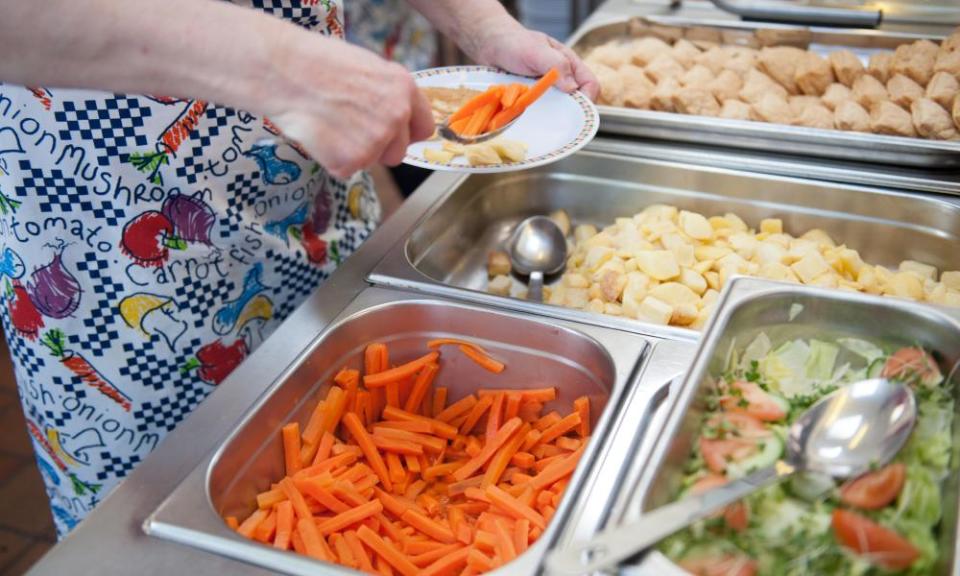Migrant children face hunger over free school meal restrictions

Thousands of children from migrant families are at risk of hunger when schools reopen in the UK unless the free meal provision is extended, according to a group of 60 organisations.
The Children’s Society, Action for Children, Project 17 and Unison are among the organisations that have written to the education secretary, Gavin Williamson, calling on him to extend free school meals to pupils from low-income migrant families classed as having “no recourse to public funds”.
Sam Royston, director of policy and research for the Children’s Society, said: “It is unacceptable that thousands of children, whose lives have already been turned upside down by the pandemic, could lose out on free school meals [when they return to school in September].
“Adjusting to being back at school will already be a tremendous challenge for most but whether a child is able to eat should not depend on their parents’ immigration status.”
The condition of “no recourse to public funds” or NRPF is imposed on migrants who have not qualified for permanent residency in the UK. It prevents their accessing essential support, including free school meals.
The number of children affected by the labelling is increasing. Research by the Migration Observatory shows that at the end of 2019 an estimated 175,643 non-EEA citizens under the age of 18 lived in families given the NRPF condition. In 2016 there were 142,496 such children in the UK.
The classification disproportionately affects black and minority ethnic groups and removes the safety net of welfare support from families likely to be already struggling financially, bearing additional costs such as fees for “leave to remain” applications.
In April this year the government temporarily extended free school meals to children in some NRPF families but there is uncertainty over how long this support will continue.
The organisations are concerned that when this help is withdrawn, thousands of children will lose out on what could be their only nutritious meal of the day.
“The extension of free school meals for children affected by NRPF has been a lifeline but we know that the impact of the pandemic will be felt for years to come,” Royston said. “The government must permanently extend free school meals to all low-income migrant families who have no recourse to public funds, to help ensure that every child can return to school with the hope of a bright future.”
A Department for Education spokesperson said: “We have temporarily extended free school meal eligibility to include some children of groups who have no recourse to public funds in light of the current unique circumstances many families face at this time. This will continue for the duration of the summer holidays and while the outbreak impacts schools.”

 Yahoo News
Yahoo News 